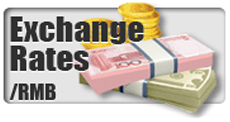
Best time to invest in Zimbabwean tantalum mines
----Interview with Antony Zunzanyika
CEO
Dangwe Hearts Incorporated (Pvt) Ltd
CEO
Dangwe Hearts Incorporated (Pvt) Ltd
Dangwe Hearts Incorporated (Pvt) Ltd started mining in 2017, whose mining subsidiary called Dangwe Mines. The company has three mines. and extracts semi-precious stones (aquamarine, tormoline, garnets), base minerals (tungsten and tin) and rare minerals (tantalum and niobium).
Asian Metal: Hi Antony, Thank you for taking part in this interview. Could you please give us a background on your tantalum project?
Antony: Dangwe Hearts Incorporated (Pvt) Ltd diversified into mining three years ago in 2017, after it realised the mineral wealth in the district of Hurungwe, Mashonaland West Province. A largely pegmatite rock area, the district produces 30% of Zimbabwe’s semi-precious stones, which is a high concentration, and has vast deposits of tantalum in the pegmatite. The company recognised the rising value and importance of tantalum as a “mineral of the future” in the electronics and defence industries worldwide. It made a decision then to concentrate on the extraction of tantalum. The company has two tantalum and niobium mines. The first mine is Susan Mine, which is made up of two explored blocks 50 hectares in extent on the geological feature known as the Honey Wolfram Belt. It has proven deposits of Tantalum (Ta2o5) with an ore content of 38% to 42%. The Tantalum occurs in alluvial gravel which is two meters below the surface, which renders it inexpensive to extract. The company is carrying out exploration on two more blocks with a total area of 300 hectares. Desk-top research confirms that the area under exploration, also on the Honey Wolfram Belt, has vast deposits of Tantalum/Niobium and pure Tungsten occurring simultaneously. Proven Tungsten deposits are 26,600t in reserves, and a potential of 64,000t in adjacent blocks under exploration. Development of the mine has been deferred to a future date, or as soon as funds for that purpose are available. The second on is Kembo Mine with reserves of 60,000t of tantalum. The tantalum content of the ore hovers at 31%~38%, and low common pollutants content. The mining block is 150 hectares in extent. The Kembo mine is being developed currently. Both minerals have a low pollutant content of Pb, U, Th and As.


Asian Metal: Could you introduce something about the total tantalum and niobium market in Africa? Is Zimbabwe able to become one of the major tantalum concentrate producers?
Antony: In the midst of the Covid-19 Pandemic, African market remains sluggish. The price for tantalum has dropped from USD186/kg to USD22/kg in the international market due to weak demand. However, it is just a passing phase. We expect the price to rise to the pre-pandemic levels once the pandemic has passed. Zimbabwe is not recognized as a major producer of tantalum. There has been little or no exploration for the mineral until recently. Known deposits were found and exploited during World War II in the south of the country. Production was suspended when downstream demand declined. The deposits in the North were unknown. We are the first entity to enter the tantalum supply chain over the past few years. Worldwide, the largest producers of tantalum are Rwanda, Democratic Republic of Congo, Nigeria, Brazil and China. Zimbabwe has the potential to join the mainstream tantalum-producing countries as demand for the mineral rises in the future.
Asian Metal: Is there any positive policy regarding the mining in Zimbabwe? How is the investment environment?
Antony: The foreign investment policy in the country has improved greatly under the Second Republic (2017 so far). The Economic Development and Empowerment Act was a huge impediment to foreign investment. It required that foreign investors own no more than 49% of investment while indigenous shareholder partners took up 51% of the investment. The act has been repealed to allow foreign investors to assume 100% ownership of their investments, without the legal requirement to partner indigenous shareholders. Further, Government has established a one-stop investment centre for foreign investors to improve the investment climate. As an investment destination for foreign capital, Zimbabwe’s ratings have improved. We may as well mention that the local government is now seriously combating corruption, which had become a pandemic. Once again, the country ratings have improved in that sphere. While the economy does have a shortage of foreign currency, the foreign currency market and the local currency have both stabilized significantly since the introduction of the Foreign Currency Auction system, which has all but halted the foreign currency parallel market. The foreign investment atmosphere is improving by the day, and this is the right moment to invest in Zimbabwe.


Asian Metal: Discouraged by COVID-19, many miners in Africa remain out of production. How about current production situation in Zimbabwe now?
Antony: The COVID-19 pandemic has had a severe impact on the performance of the economy of Zimbabwe. Most affected is the tourism industry, which halted through the lockdown control mechanism. However, the local government quickly recognised the importance and value of the Mining Industry to the revival of the economy, and the mining industry was exempted from the lockdown. Our company is one of the mining companies to benefit from the exemption. It is the policy intention of the local government to grow the mining industry from the present USD3 billion to USD12 billion by 2023. The industry is thus enjoying preferential treatment, together with Agriculture. To answer the question more precisely, the mining industry is fully functional during this period.
Asian Metal: What is the average production cost of tantalite in Zimbabwe?
Antony: At USD22/kg, we think that we would break even. Once more, production costs depend very much on the method of extraction involved. Deposits that lie deep underground are more expensive to extract that alluvial deposits. Our tantalum assets are all alluvial on the surface, which makes extraction costs lower when compared to other producers world-wide and in Africa. The deposits being worked on by Dangwe Hearts are largely alluvial, and a better mined through the open cast system. Using this method of extraction, the production costshover at around USD7-10/kg.

















